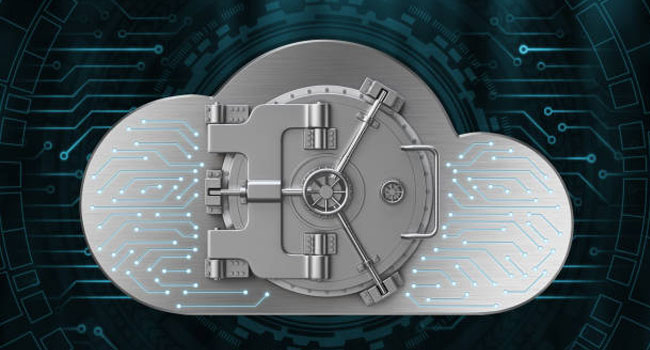6 Reasons Why You Should Improve Your Cloud Security

As we head further into the digital era, the need for cyber security has never been more apparent. Organisations are moving many of their business applications and data into the cloud, making the cloud a prime target for cyber criminals and threat actors. If you’re not yet paying extra attention to your cloud security, then it’s high time you did.
Cloud Security Defined

Cloud security is a discipline of cybersecurity that focuses primarily on protecting the cloud. Also referred to as cloud computing security, it is the collection of security policies, guidelines, procedures and technologies designed to work together to secure cloud-based applications and systems.
Enterprises of all sizes are now paying more attention to cloud security with the increased reliance on a cloud environment. Not only are business data, customer information, and other valuable data assets being entrusted to cloud storage, but the ‘attack surface’ of cyber threats has also significantly expanded with employees using a variety of smart devices as they work from anywhere.
Cloud security can be categorised into five specific areas: data security, identity and access management (IAM), governance, data retention and business continuity, and legal compliance. Ideally, you would want to put equal consideration into all five fields, but it’s also prudent to focus on the area in your business which is most vulnerable.
Just How Secure is the Cloud?

All the concern over cloud security would lead you to wonder: Just how secure is the cloud in its present form? Well, the short answer to this is that not all clouds are created equal. When you’re using the services of today’s biggest cloud service providers—Amazon Web Services, Google Cloud, Microsoft Azure and a handful of others, you can be sure that you are operating in a secure cloud environment.
These leading cloud providers employ the best and most secure technologies to guarantee that all customer data and applications entrusted in their servers are protected. Perhaps the same could also hold true for other lesser-known cloud solutions. Cloud storage, for example, is designed for optimal security from the ground up, with data encrypted and stored redundantly.
So yes, most cloud environments are secure as they are. But then again, you can do better than simply entrusting the security of your data, files, and applications into the hands of a third-party provider. At the end of the day, every company is responsible for their own data.
Why Improving Cloud Security is a Must

Here are 6 reasons why organisations need to take steps in ensuring cloud security:
-
Data breaches are happening all too often. Despite all policies and technologies designed to protect the cloud, data breaches are still a threat that enterprises need to contend with everyday. According to recent IBM research, the average cost of a data breach is expected to reach a whopping US$4.35 million by this year (2022).
For sure, spending millions (and even just thousands) of dollars to deal with the consequences of a security breach is something you’d wish to avoid, and that’s only one aspect of it. There’s also the loss of customer trust, damage to your company image, and potential high employee turnover.
-
Remote work is the new normal. Remote working (or at least the hybrid form of it) is here to stay, and Bring Your Own Device (BYOD) has been a common practice for many enterprises. This means employees are using a mix of work and personal devices, and accessing company apps and data from practically anywhere.
Cloud security helps compel better management of remote working. Organisations can deploy identity and access management solutions and mobile device management best practices to minimise risk of malware and other forms of security threats.
-
Maintaining regulatory compliance is critical. Almost all companies today handle consumer information in one way or another so it’s no wonder that data compliance regulations (e.g. HIPAA, PCI DSS, GDPR, etc.) are strictly being implemented, with more laws and acronyms being introduced almost every year.
Ensuring the security of your data in your cloud would be in your best interests because failure to comply with these standards would mean paying hefty fines. Do note though, that these data compliance laws weren’t put in place just to get organisations to pay up, but more as a means to protect customers, employees, and businesses in general.
-
Threat models are constantly evolving. While cloud providers prioritise cloud security above all else, the fact is that cyber threats are evolving everyday and hackers are just waiting for the right time to strike. Protecting your data and systems with security cloud solutions can help mitigate the risk.
Protection mechanisms such as data encryption and identity authentication are security methods that may be independent of the cloud itself. Data privacy and security can remain intact even when the cloud provider is compromised.
-
Awareness is a major part of cloud security. One thing that enterprises have come to realise the hard way is that security breaches don’t just stem from ineffective cloud security. A key factor as well is the lack of awareness of employees, and consequently, their faulty security habits. These include poor password practices, unsafe downloads, and failure to recognize phishing and social engineering schemes. That’s why businesses should make security training a part of every cyber security framework.
-
Business continuity and disaster recovery (BCDR) is vital to every enterprise. If there’s one thing that the COVID-19 pandemic has taught us, it’s that it pays to be ready for all eventualities. Companies who already had some cloud solution and remote working policy in place were the fastest to get back to work despite the circumstances. A secure cloud not only means having backup data and systems in place, but also having a fast and reliable way of getting back up in case an emergency strikes.
Making Cloud Security a Priority

The cloud environment has advanced in leaps and bounds such that there are more trusted cloud providers now more than ever. However, it’s also critical to take responsibility for protecting your cloud so that you have all bases covered. There are many ways to do so—deploying cloud security software, investing in the latest cloud storage technologies, and having a cloud operations manager to oversee your systems are only some of these methods.
If you’re still looking into your options, the best way to start is to consult with your IT managed services provider today.
Related Posts
By accepting you will be accessing a service provided by a third-party external to https://www.htl.london/